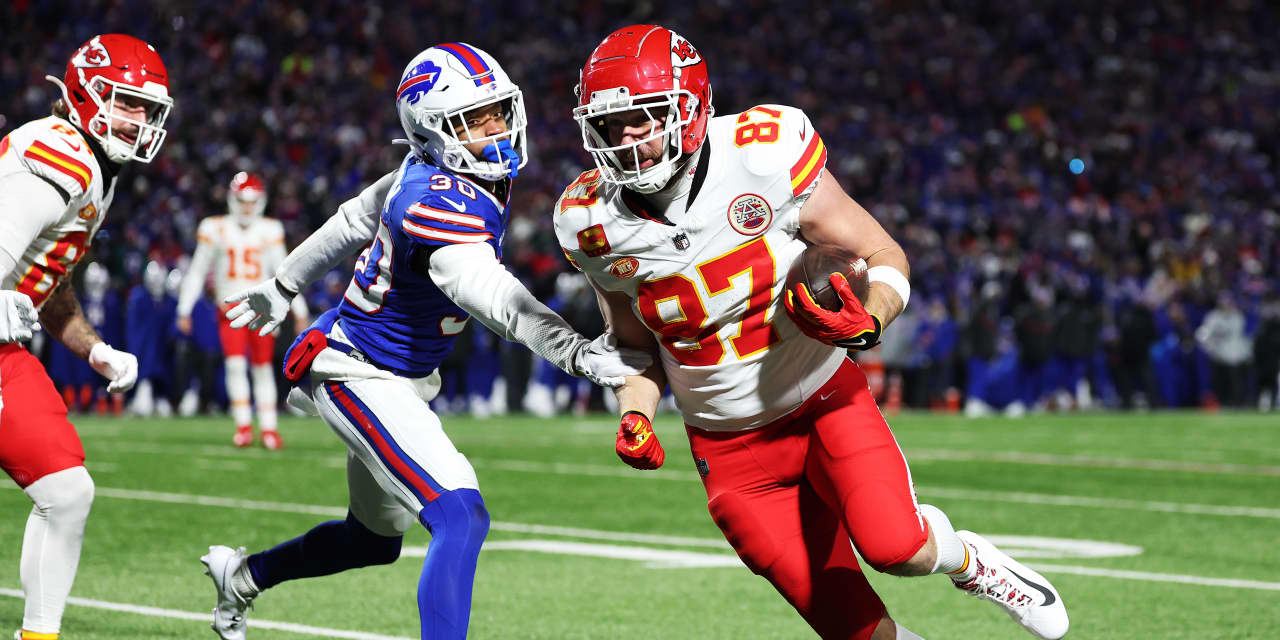It’s a whole new ballgame.
So far, the new venture has no name, and the companies haven’t unveiled a leadership team or provided details on pricing. But this new service—if launched as planned this fall—could shake the already rickety foundation of the U.S. television market to its core. With this deal, TV shifts from evolution to revolution.
Effectively, the three companies are building a sports-based version of services like YouTube TV and Sling TV that offer digital alternatives to old-school cable. They’re removing news and entertainment programming from the cable bundle, leaving only sports behind.
Michael Nathanson, an analyst with MoffettNathanson, described the plan as “the skinny sports bundle that we’ve been waiting for,” a service that “strips out the bloat.”
This is a problem if you run linear news or entertainment channels, i.e., “the bloat.” And that is hardly the only complication.
“Whether you are
Paramount,
Comcast,
NFL Network,
AMC Networks,
A&E Networks, or station groups with large numbers of NBC or CBS stations, the successful launch of [the sports] bundle is your worst nightmare,” wrote Lightshed Partners analyst Rich Greenfield. Here’s why.
Cord-cutting will accelerate: Since 2018, a quarter of all U.S. households have dropped their pay-TV services, as viewers cut the cord and refocused on streaming services. One of the main reasons for keeping that cord has been sports, but the new bundle could offer a non-cable, cheaper alternative to sports fans.
Analysts have already speculated that the new service would be priced around $40 a month. The bundle won’t quite be enough for NFL fans, since it lacks Comcast’s NBC and Paramount’s CBS; but you can solve that with subscriptions to Peacock and Paramount+ at $6 a month each. That gets you to $52. Compare that with $73 a month for YouTube TV—and more if you subscribe to conventional cable.
Disney and Fox have said the offering is focused on “cord-nevers” rather than cord-cutters, but that feels like wishful thinking. There has been little reason to hang on to conventional pay-TV services other than sports and news content. And now a big part of that reason is going away.
The new package highlights a double standard in the world of television bundling. Disney is now offering a direct package of ESPN and other sports content directly to consumers, while still forcing cable providers like Comcast to pay for its other channels—including Freeform and Disney Jr.—if it wants ESPN.
“Every distributor we have ever talked to has wanted more flexibility in how they package and price bundles of linear TV channels,” Greenfield wrote about the deal.
It’s a disaster for nonsports content: Shares of
E.W. Scripps
fell 24% in the wake of the sports bundle announcement. The company owns a collection of nonsports cable networks like Court TV, ION, Bounce, Grit, Laff, and Defy TV that suddenly look more vulnerable if viewers cut ties with their cable or satellite service. Shares of AMC Networks sold off, too.
And it isn’t great for Paramount. The company still owns CBS and other linear channels. Its sports content was left out of the new streaming partnership.
Even
Warner Bros. Discovery
and Fox, which are part of the sports bundle, risk losing more business than they gain. WBD owns nonsports channels like the Food Network, CNN, and the Travel Channel, while Fox has Fox News. Both stocks moved lower after the sports bundle was unveiled. (Fox and News Corp, the parent company of Barron’s publisher Dow Jones, share common ownership.)
It’s trouble for local TV affiliates: This deal is prickly for local TV stations that have been relying on cable and satellite providers for distribution. Shares of TV
Gray Television
and
Nexstar Media Group,
which own multiple local-market TV outlets, sold off on the news.
Gray tried to keep things positive: “Gray welcomes any venture that expands the reach of local broadcasting stations, which in turn supports the ability of local stations to maintain trusted local news operations that benefit everyone,” the company said. Investors are less convinced—the stock sold off 15% after the sports bundle was announced.
It’s an issue for Fubo:
FuboTV
is a sports-focused virtual cable service that includes most of the channels in the new bundle—it lacks TNT and TBS. The company’s entry level “Pro” account runs $79.99 a month for a collection of 190 channels that also includes some of the above-mentioned “bloat” such as Bravo, E!, and USA. Fubo’s shares lost about a fifth of their value this past week, and the company isn’t happy.
“Every consumer in America should be concerned about the intent behind this joint venture and its impact on fair market competition,” Fubo said in a statement.
Paging Lina Khan: This isn’t a merger, but the new bundle feels a lot like the dominant players in sports TV teaming up in a way that could hurt smaller players. Will the FTC look at this? Or the FCC? Or Justice? Will they get sued by Fubo, sports leagues, or local TV networks? To lever the now antiquated metaphor: Stay tuned.
Write to Eric J. Savitz at [email protected]
Read the full article here




